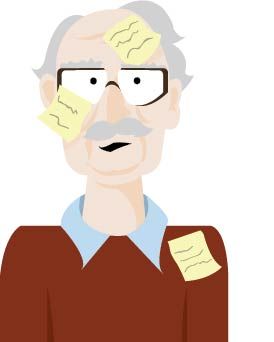Alzheimer’s study targets memory loss reversal

Alzheimer’s study targets memory loss reversal
October 6, 2014
Alzheimer’s disease, which affects more than 5 million Americans, is a neurological disorder for which there is no cure, nor has the cause of the disease been identified. However, memory loss, a major symptom of Alzheimer’s, has been shown to be reversible for the first time in a small study of participants diagnosed with various stages of neurodegenerative disease.
A study, published Sept. 27 in the journal Aging outlined a 36-point therapeutic program that included dietary and exercise protocols, sleep optimization, vitamin supplementation and pharmaceuticals targeted to affect brain chemistry and individually tailored to each of the 10 participants.
Study participants exhibited varying stages of cognitive decline, ranging from subjective changes in memory or forgetfulness to symptoms that show up as abnormalities on formal tests.
“Unless you’ve been tested your whole life, we don’t have a great way to determine what is considered [normal cognitive function] is actually normal for you,” said Dr. Dale Bredesen, author of the research and director of the Easton Center for Alzheimer’s Disease Research and the Neurodegenerative Disease program at University of California, Los Angeles.
Bredesen said that six of the 10 participants who had been having trouble doing their jobs were able to return to work successfully—participants regained language learning abilities and mathematical skills they had lost with the onset of Alzheimer’s symptoms.
“For a number of them, it’s not a small effect,” Bredesen said. “Many of these people were able to go back to normal.”
Researchers studying neurodegeneration have yet to find a single problem that can be addressed with a single solution, Bredesen said. He explained that the mechanism is like a roof with many holes in it: A prescription medication capable of plugging one hole could be developed, but because there are still numerous other places for water to seep through, that single plug could make very little difference. The idea then is to use a number of methods in concert to address holes the leaking roof. He said it is ultimately a balance of plasticity.
“When you’re young, you have a beautiful balance [in place],” Bredesen said. “You’re making and storing new memories all the time. You’re forgetting things, too, which is normal.”
According to Bredesen, changes in lifestyle factors and genetics over time can influence that balance. Researchers are able to measure many of the biochemical parameters that impact the balance and attempt to get rid of anything that tips the scales in the negative direction and add factors that might be favorable against neurodegeneration.
Dr. John Weiss, a professor of neurology, anatomy and neurobiology at the University of California, Irvine School of Medicine, said the current pharmacological treatments for Alzheimer’s disease fall into two categories of drugs, both of which act on chemical messengers in the brain in an attempt to delay worsening symptoms.
“Both treatments have shown some mild symptomatic effect, but there’s no real evidence that either one of them affects the overall course of the disease,” Weiss said. “There may be some benefit for a matter of months, but there’s not a treatment in use that affects the course of Alzheimer’s.”
According to Weiss, many basic scientific studies are being performed to identify factors that likely contribute to neurodegenerative damage, but researchers think earlier detection and diagnosis is key to actually increasing the chance of changing the course of the disease.
“When most people are diagnosed, they actually have a lot of short-term memory–related symptoms but may also exhibit noticeable changes in demeanor and personality, becoming more aggressive or just not behaving like themselves,” said Virginie Buggia-Prevot, a staff scientist at University of Chicago’s Thinakaran Lab.
According to Buggia-Prevot, one of the best things to do is train one’s memory and perform exercises to maintain cognitive function as much as possible. Alzheimer’s patients often work with therapists to improve memory.
“It’s important to keep in mind that neurons are dying, and they will die with or without treatment,” she said. “Current [drug treatments] may be able to slow down the memory impairment and improve cognitive function, but [Alzheimer’s] is one of the few degenerative diseases we don’t really have an efficient treatment for.”
Bredesen said this therapy could be a useful platform for drug discovery. Testing a new drug with all of the aspects of the therapy already in place in an individual would allow for a more effective baseline measurement of the drug’s efficacy.
“For hundreds of years, physicians have been treating patients based on a relatively small amount of information,” Bredesen said. “In the era of big data, we can collect many more points about what’s driving this process and work on developing a personalized outcome to correct the imbalance.”







